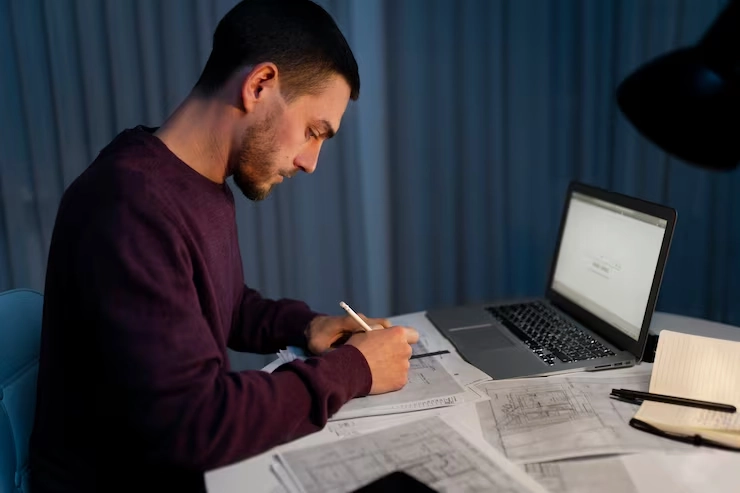When applying for an engineering program, your personal statement serves as your first introduction to the admissions committee. In a competitive field like engineering, how you present yourself in your application could be the difference between receiving an acceptance letter and a rejection. At Pearl Lemon Academy, we know how crucial this document is to your future. That’s why we’ve put together this detailed guide to help you craft an exceptional personal statement for engineering that will help you stand out.
In this article, we’ll walk you through every key element of an engineering personal statement, share actionable tips, and provide insights from admissions experts to help you put your best foot forward.
Book your Consultation now!
What Is a Personal Statement for Engineering?

A personal statement is a critical piece of your university application. It’s your chance to show admissions committees who you are beyond the numbers—your grades, test scores, and academic achievements. But most importantly, it’s the opportunity to demonstrate why you’re passionate about engineering and why you’re a good fit for their program.
In essence, a personal statement tells your story. It provides context for your academic and professional journey, gives insight into your aspirations, and explains why you’ve chosen engineering as your field of study. For those applying to graduate programs, this statement will also showcase your readiness to tackle more advanced engineering concepts and research.
Talk to our Specialist
Why Your Personal Statement Matters in Engineering Applications

When applying to an engineering program, you’re up against hundreds (if not thousands) of other candidates with similar academic backgrounds. So how do you separate yourself from the crowd? The answer is your personal statement.
Admissions officers look for more than just grades—they want to understand your motivation, how you think, and your future career aspirations. An exceptional personal statement can:
- Help the admissions committee understand your journey and what motivates you.
- Highlight your technical and problem-solving abilities.
- Show your potential to contribute to the university’s academic environment.
- Demonstrate your long-term vision for your career in engineering.
At Pearl Lemon Academy, we specialize in helping students like you craft personal statements that reflect not only their technical skills but also their passion and interest. If you need help getting started, schedule a consultation with us to refine your personal statement for maximum impact.
Key Elements to Include in Your Engineering Personal Statement

To write a standout personal statement, you must touch on several key components. These elements will make your statement engaging, clear, and Customized to the admissions committee’s expectations.
1. Introduction: Make a Strong First Impression
Your introduction is the first chance to grab the reader’s attention. While your academic achievements and technical expertise are important, this section should focus on why you’re passionate about engineering.
- Start with a personal story or key moment: Think about when you first became interested in engineering—was it a project, a challenge you solved, or an influential person who inspired you?
- Highlight your enthusiasm for the field: Admissions officers want to know why you’re excited about becoming an engineer. Make it clear that you have a deep interest in solving real-world problems through engineering.
A strong introduction sets the stage for the rest of your personal statement. Book a call with us if you need help creating a compelling opening.
2. Academic Background and Technical Skills
This is where you can show off your academic achievements and relevant coursework. While you want to avoid turning your personal statement into a résumé, it’s essential to provide context for your academic performance.
- Discuss your engineering-related coursework: If you’ve taken any engineering courses or related subjects like physics, mathematics, or computer science, mention them.
- Describe any projects, research, or competitions: If you’ve participated in any engineering projects, internships, or competitions, highlight these experiences to show your technical prowess.
- Quantify your achievements: Include any measurable outcomes that demonstrate your success, like awards, recognitions, or performance in relevant subjects.
.
3. Relevant Experience and Extracurricular Activities
Engineering is not just about what you know; it’s also about how you apply that knowledge. Use this section to describe any real-world experiences where you’ve demonstrated engineering skills.
- Internships and Work Experience: If you’ve completed internships or worked in engineering roles, mention how these experiences have prepared you for university-level engineering.
- Extracurriculars: Being involved in clubs, organizations, or volunteer work related to engineering can set you apart. Did you participate in a robotics club or help build something for a community project? Be sure to include it.
Relevant experiences demonstrate that you’re more than just a student; you’re an active participant in the engineering community..
4. Career Aspirations and Why This Program
In this section, you need to connect your personal statement to the long-term. Explain why you chose engineering and how this specific program will help you achieve your career goals.
- Your engineering goals: Are you looking to work in civil engineering, robotics, software development, or another field? Be specific about what excites you about engineering and how you want to contribute to the industry.
- Why this program: Do your research on the program you’re applying to. What about this university or department aligns with your goals? Mention professors, research groups, or special programs that particularly interest you.
If you want your personal statement to stand out, showing why this program is the best fit for you can make a significant impact. Schedule a consultation to get personalized advice on how to incorporate this into your personal statement.
Common Mistakes to Avoid in Your Engineering Personal Statement

While crafting your personal statement, it’s important to avoid several pitfalls that could hinder your chances of standing out.
1. Being Too Generic
One of the biggest mistakes applicants make is writing a statement that sounds like everyone else’s. Admissions officers want to hear your story—specifically, your motivation, experiences, and vision for the future. Avoid using generic phrases like “I’ve always loved engineering” without backing it up with specific examples.
2. Overloading with Technical Jargon
Yes, you’re applying for an engineering program, but that doesn’t mean you should overload your personal statement with technical jargon. Remember, admissions officers aren’t always engineers themselves, and clarity is key.
3. Focusing Only on Academics
While your academic background is essential, admissions officers want to know about your personal qualities and experiences, too. Don’t neglect to mention the extracurricular activities, projects, or challenges that show who you are as a person.
4. Ignoring the Program’s Specific Requirements
Different engineering programs have different focuses, whether it’s research, design, or applied knowledge. Design your personal statement to the program you’re applying to and show how your goals align with their unique offerings.
If you’re wondering how to showcase your experiences effectively, book a consultation with us today
Writing Tips to Help You Succeed

To make sure your personal statement is as strong as possible, follow these writing tips:
- Use a clear, active voice: Avoid passive constructions. Write in the first person to make your statement feel authentic.
- Be concise and focused: Keep your personal statement within the recommended word count, typically around 500-1,000 words.
- Revise and proofread: After writing your draft, take the time to revise and proofread it several times. Consider getting feedback from teachers or mentors.
At Pearl Lemon Academy, we believe that every detail counts. If you’re unsure how to frame your academic background, schedule a consultation with our experts.
Why Choose Us?
We understand that crafting a standout engineering personal statement is crucial to your application success. Our team is committed to helping you articulate your passion, experiences, and aspirations in a way that resonates with admissions committees. By working with us, you get:
- Personalized Guidance: We don’t offer generic advice. We help you build a personal statement that reflects your unique journey and goals.
- Proven Results: Our approach has helped countless students gain admission to top engineering programs by showcasing their technical skills and passion effectively.
- Focused Strategy: We assist in structuring your statement so it’s clear, compelling, and meets the expectations of your chosen program.
- Ongoing Support: From brainstorming to revisions, we’re with you at every step to ensure your personal statement is the best it can be.
If you’re serious about getting into your dream engineering program, we’re here to ensure your application stands out. Schedule a consultation to get started!
FAQs About Writing an Engineering Personal Statement
How long should my personal statement be?
Typically, engineering personal statements are between 500-1,000 words. Check the specific program’s requirements to ensure your statement meets the length requirements.
Can I include personal challenges or hardships?
Yes, but do so in a way that emphasizes how you’ve grown from those challenges and how they have shaped your engineering goals.
Should I mention extracurricular activities?
Absolutely! Extracurricular activities related to engineering or leadership roles can make a big difference in your application.
Can I mention my desire to work in a specific engineering field?
Yes! Be specific about your goals. Whether you want to work in aerospace, civil engineering, or software development, mentioning this will show your passion and commitment.
Should I include technical skills in my personal statement?
Yes, highlighting relevant technical skills is essential, but make sure you balance this with personal stories or examples that showcase how you’ve applied those skills in real-world situations.
How can I stand out from other applicants?
To stand out, focus on your unique experiences, passion for engineering, and personal challenges. Admissions committees want to see what makes you different from other applicants—whether it’s a specific project, a particular problem you solved, or a unique aspect of your background.
Is it okay to mention my future career goals in my personal statement?
Absolutely! In fact, mentioning your career goals shows you have a clear vision for your future and helps the admissions committee understand how the program will help you achieve those goals.
Your Next Steps in the Application Process
Your engineering personal statement is one of the most important documents in your application process. By following the steps outlined in this guide, you’ll be able to craft a statement that truly represents who you are as an aspiring engineer. Remember, it’s not just about your academic skills—it’s about showing admissions committees your potential to succeed in the field.
If you want your personal statement to stand out and make a lasting impression, schedule a consultation with us at Pearl Lemon Academy today. We’re here to help you take the next step in your engineering career.

